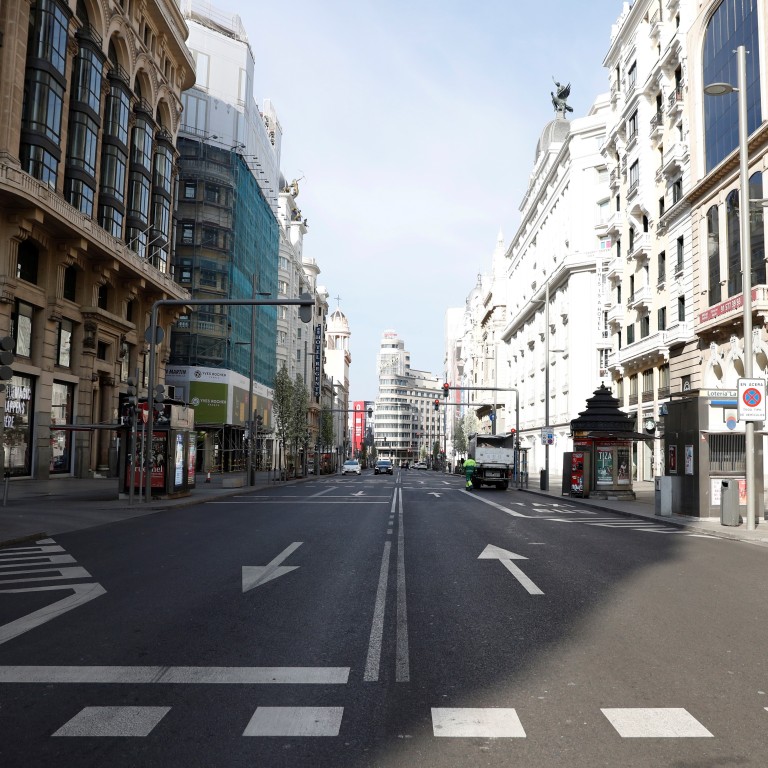
Coronavirus: ‘empty streets’ as Spain braces for nationwide lockdown
- People will be barred from leaving home for the next two weeks unless they need food, medicine or if they have to go to work
- It is the worst-hit country in Europe after Italy, which has imposed similar restrictions
In Spain, more than 5,700 people have tested positive for the virus, with over 180 deaths. Meanwhile in Italy, more than 21,000 cases have strained the hospital system – especially in the Lombardy region, where more patients were admitted to intensive care wards on Saturday than any other day since the outbreak began.
The death toll in Italy stood at 1,441 as of Sunday, almost half the number killed in China. One of the country’s most celebrated architects, Vittorio Gregotti, whose work includes Barcelona’s Olympic Stadium, died from the disease in Milan on Saturday at the age of 92, Italian media reported.
In France, Britain and some parts of Germany, social distancing measures have been imposed or are planned, with policymakers seeking ways to help elderly people in need and businesses struggling to cope with the widespread economic disruption.
In Germany, reservists were called up to assist with the coronavirus situation on Saturday, Die Welt newspaper reported. The European Union’s biggest economy now has the third most serious outbreak in the region, with more than 4,500 cases.
Meanwhile, Denmark, Poland, the Czech Republic and Slovakia have sealed off their borders, with almost all non-citizens barred from entering.
After Spain announced a state of alarm, imposing tight restrictions across the country, the usually bustling capital Madrid is now a ghost town.
Resident Guillermo Plaza Aguado, who works in the insurance industry, said it was “very calm with empty streets”.
“There was some panic buying in the previous days, when the closing of schools in Madrid was announced, but it was overall under control and there have been no supply shortages of any products, besides very few exceptions,” he said.
WHO urges governments to act and not be ‘paralysed by the fear of failure’
Declaring the state of alarm on Saturday, Sanchez said the Spanish government would “use all the resources at our disposal to combat the curve of contagion. The measures that we are going to adopt are drastic and will have consequences”.
For now, Spaniards can still go to work if doing their jobs from home is not an option.
Some in the region are under fire over their handling of the crisis, including France for its decision to go ahead with nationwide local elections on Sunday, and the British advisers promoting a strategy of “herd immunity” – allowing as many people to get infected as possible and potentially becoming immune as a result.
British Health Secretary Matt Hancock was quick to reject the idea as a government policy, though he would not say when the government planned to introduce measures to encourage elderly and at-risk people to stay at home.
“I would not go into the timing,” Hancock told the BBC. “We will be taking further measures.”
The British government plans to introduce emergency laws this week to ban mass gatherings.
Purchase the China AI Report 2020 brought to you by SCMP Research and enjoy a 20% discount (original price US$400). This 60-page all new intelligence report gives you first-hand insights and analysis into the latest industry developments and intelligence about China AI. Get exclusive access to our webinars for continuous learning, and interact with China AI executives in live Q&A. Offer valid until 31 March 2020.

